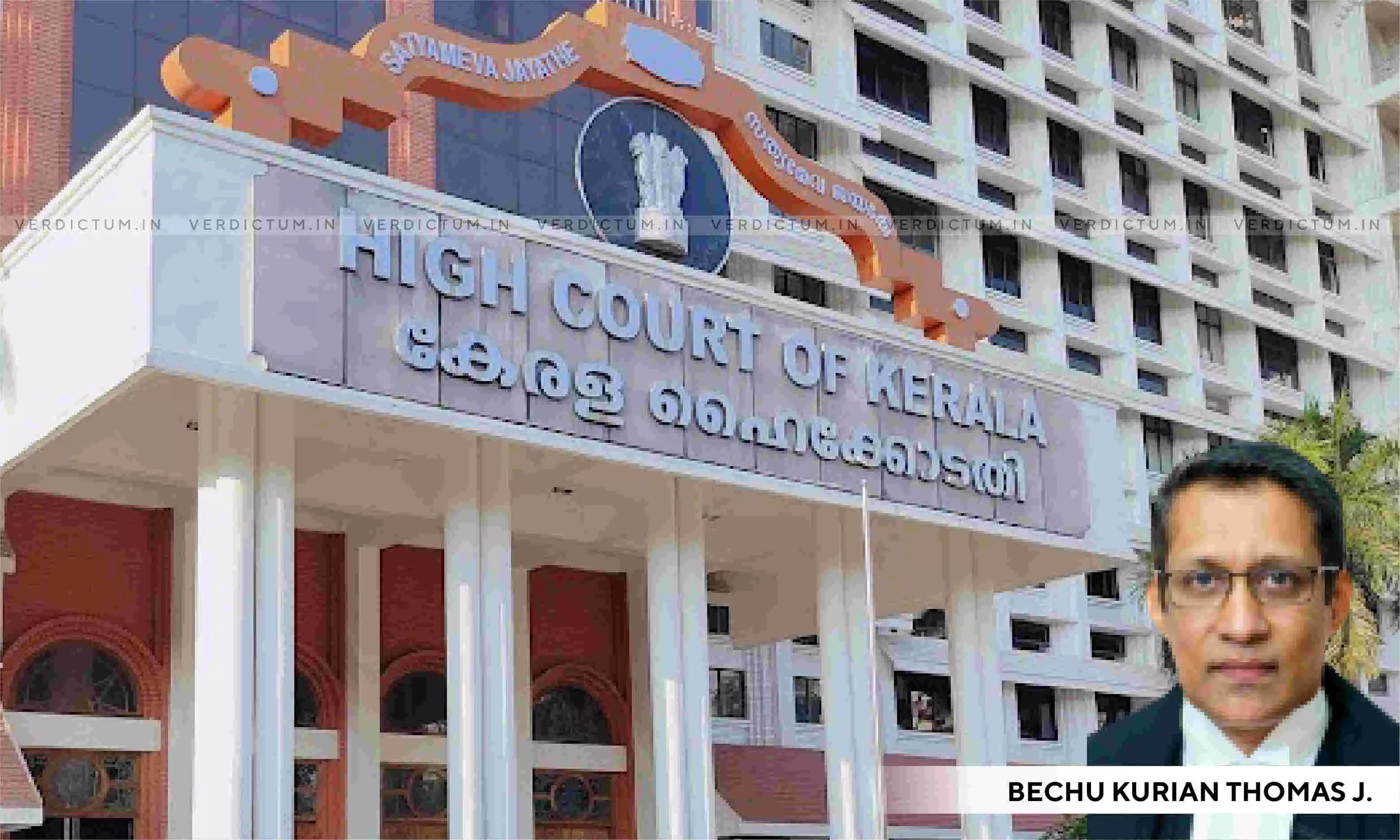
'Customer' In A Brothel Can Be Prosecuted Under The Provisions Of Immoral Traffic Act- Kerala High Court
 |
|The Kerala High Court has observed that a customer in a brothel can be prosecuted under the provisions of the Immoral Traffic (Prevention) Act, 1956.
Justice Bechu Kurian Thomas held, "…a 'customer' in a brothel can be proceeded against criminally under the provisions of section 7 of the Act if the other conditions of the section are satisfied."
In this case, the prosecution had alleged that the first accused had taken a building situated 175 metres away from the Ravipuram Temple at Ernakulam, to conduct an Ayurvedic Hospital and under the cover of the ayurvedic hospital permitted the conduct of prostitution by appointing the second accused as the supervisor and accused Nos.4 and 5 for carrying on the prostitution
It was further alleged that the IO found the third accused engaged in a sexual act with accused nos. 4 and 5 after paying Rs. 500/- and thus committed the offence under Sections 3, 4, and 7 of the 1956 Act.
The third accused-Petitioner (alleged customer) approached the High Court under Section 482 CrPC alleging the he had approached the Ayurvedic Hospital for the treatment of his back pain and the doctor on duty had prescribed oil massage for a period of 30 days. As per the Petitioner, while he was undergoing treatment, the police officers came to the hospital and arrested him and accused Nos.4 and 5, who were the nurses employed at the hospital.
According to the Petitioner, even if, for argument's sake, the allegations are assumed to be true, still, he, being only a 'customer', cannot be proceeded against, as the statute does not contemplate prosecuting a 'customer'.
The issue dealt with by the High Court was –
- Can a 'customer' in a brothel be proceeded against criminally under the Immoral Traffic (Prevention) Act, 1956.
The Court noted that the 1956 Act was enacted pursuant to India becoming a signatory to the Convention for the Suppression of the Traffic in Persons and of the Exploitation of the Prostitution of Others.
Further, the Court noted that one of the salient features of the Act is that prostitution per se is criminalized. The Act has criminalized only certain activities connected with prostitution as well as prostitution in certain specific areas.
The Court further referred to Section 7 of the Act which makes prostitution in certain specific areas punishable.
"Three different areas are contemplated under section 7 of the Act. They are (i) areas notified by the State Government under section 7(3), (ii) areas that are within a distance of two hundred metres from places of public religious worship, educational institutions, hostel, hospital, or nursing home, and (iii) public place of any kind which are notified by the Commissioner of Police or Magistrate in the manner prescribed."
The Bench noted that Section 7(1) penalizes two types of persons for indulging in prostitution within the areas specified.
Those persons are – i) the person who carries on prostitution, and ii) the person with whom such prostitution is carried on.
Admittedly, the Bench noted that under Sections 3 and 4, a 'customer' is not included and only a brothel owner and a person who lives on the earnings of prostitution are included.
"The meaning to be ascribed to the words the "person with whom such prostitution is carried on" is significant for this case. Those words will have to be read in conjunction with the definition of the word prostitution. The term prostitution is defined as sexual exploitation or abuse of persons for commercial purposes. Sexual exploitation cannot be done singularly. The person engaged in the act of exploitation is also a person who falls within the term 'persons with whom such prostitution is carried on." the Court added.
The Court thus held that the person who exploits or abuses the prostitute is the person with whom the prostitute carries prostitution. Thus the act of immoral traffic cannot be perpetrated or carried on without a 'customer and further observed –
"By using the words 'person with whom the prostitution is carried on' in section 7(1) of the Act, I am of the considered view that the legislature has intended the customer also to be brought within the purview of the penal provisions."
The Court held that the purpose of the statute cannot be ignored and thus observed –
"The Act is intended to be a deterrent against and prevent immoral traffic. In the absence of the customer falling within the penal umbrella of the statute, the objects of the enactment can never be achieved. Thus, in my considered opinion, the words 'person with whom such prostitution is carried on' as appearing in section 7(1) of the Act will include a 'customer'."
The Court thus held that a 'customer' in a brothel can be proceeded against criminally under the provisions of section 7 of the Act if the other conditions of the section are satisfied.
Accordingly, the Court dismissed the Petition.
Cause Title – Mathew v. State of Kerala
Click here to read/download the Judgment